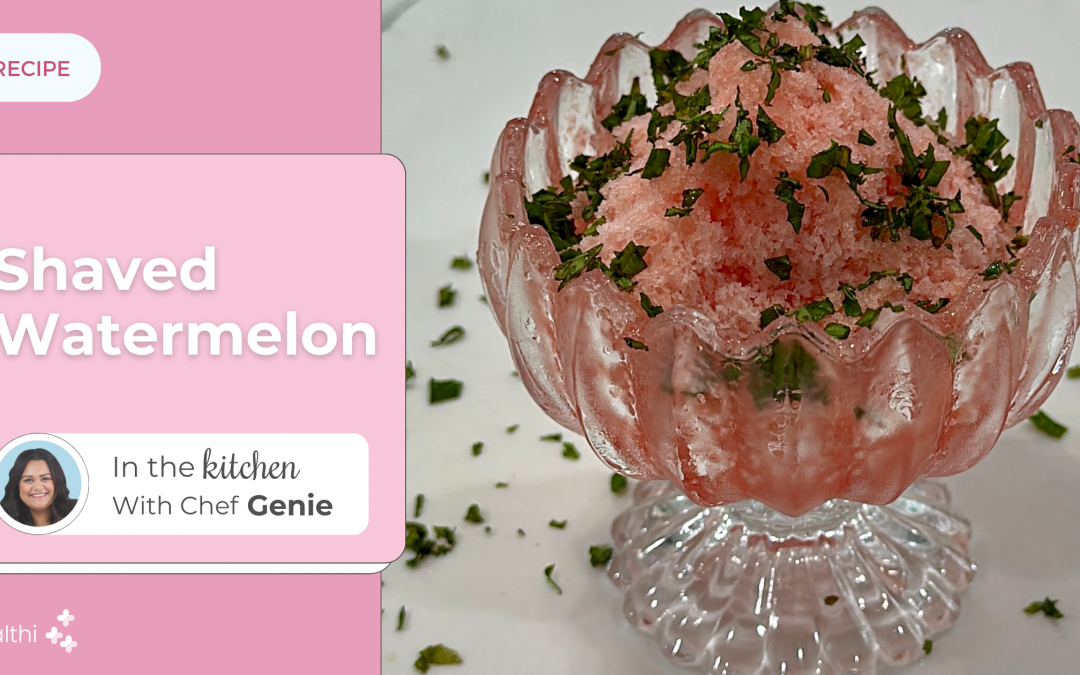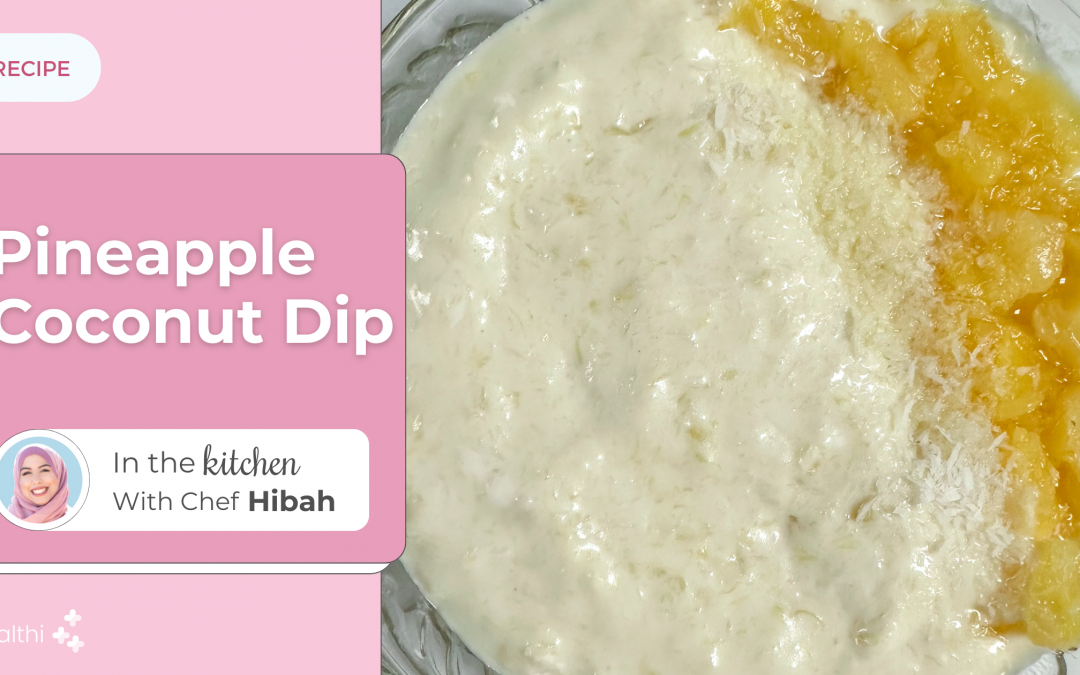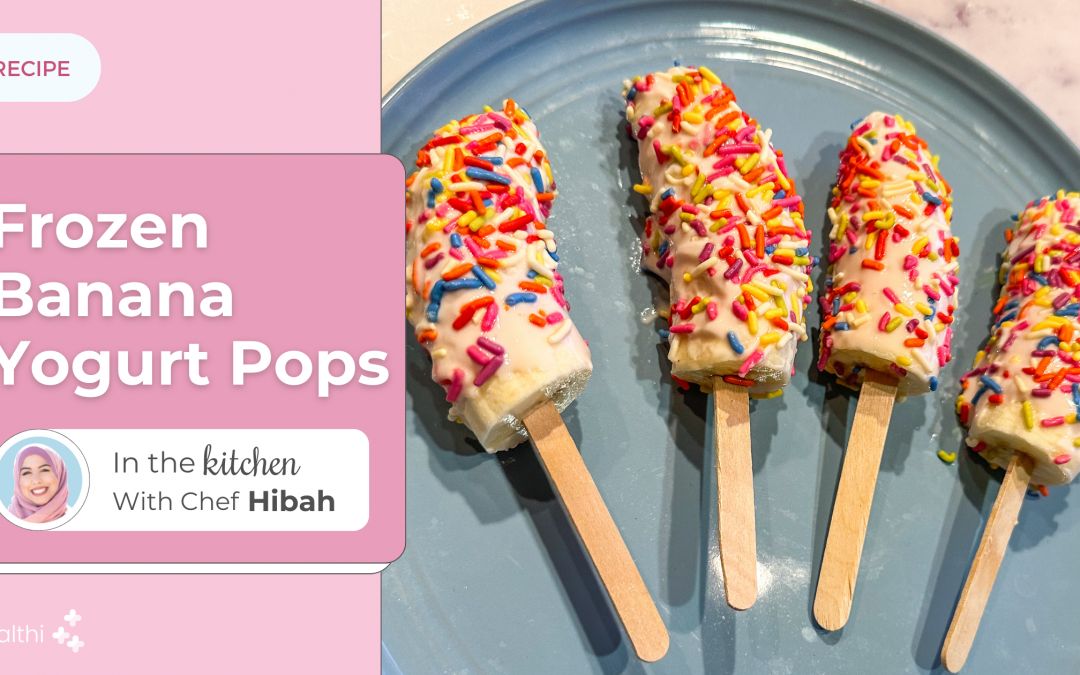The blood sugar level in your body refers to the amount of glucose (which is the main sugar found in your body) you have in your system. This is your body’s primary source of energy, and it is sourced from the food you eat. A normal blood sugar range would be less than 140mg/dL around two hours after consuming a meal, and less than 100mg/dL after not eating for around 8 hours. Given that this is dependent on your intake, blood sugar levels will be at their lowest right before you consume a meal.
Many people believe that your blood sugar levels remain low, even if you don’t have diabetes, or, if you do, you’ve got everything under control. According to the Centers for Disease Control and Prevention (CDC), there are many sly triggers that you wouldn’t expect to impact your blood sugar levels. Yet, they do.
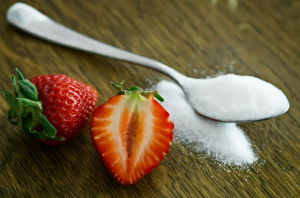
Lowering Your Blood Sugar Naturally: A How To Guide
- What can cause a spike in your blood sugar level?
- How can you lower your blood sugar naturally?
- Dietary changes
- Lifestyle changes
1. What can cause a spike in your blood sugar level?
From the most harmless thing to things that you may not even pay attention to, your blood sugar level could spike tremendously at any given time due to various factors. Whether it’s stress or pain, or something as seemingly inconsequential as a sunburn (that eventually leads to both stress and pain), the impact this has on your blood sugar levels is alarming.
Other triggers include caffeine, dehydration, gum disease, or even nasal sprays. While further studies are required on artificial sweeteners, it is believed that these, too, can spike your blood sugar levels.
In addition to this, things like not getting enough sleep and skipping breakfast, could send your blood sugar level soaring. There is also the ‘dawn phenomenon,’ which the CDC describes as “a surge in hormones early in the morning” regardless of whether or not you have diabetes.
High blood sugar can cause a lot of very serious long-term damage, such as heart disease, stroke, kidney disease, eye damage, nerve damage, and a lot more. Keeping your blood sugar levels regulated is always in your best interest.

2. How can you lower your blood sugar naturally?
Many people don’t realize that by making certain dietary and lifestyle changes, you can lower your blood sugar naturally. A firm, disciplined hand, and dedicated consistency in your routine will be your absolute best friends during this process.
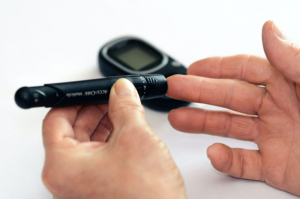
3. Dietary changes
To lower your blood sugar naturally, make sure your intake of fiber is consistent. Fiber works as a stabilizer for your blood sugars and can also be preventative when trying to reduce the incidence of diabetes. It also lowers the risk of you developing cardiovascular disease. Fiber is easily found in whole grains, legumes, raspberries, and peas.
Apart from this, you can also give due attention to your carbohydrate intake. This is especially important if you already have type 2 diabetes. There will never be a generalized, ideal amount for everyone. Physical factors will impact how many carbohydrates you need in your diet. Using the Healthi app will allow you to add in all these varying factors to get a tailor-made meal plan that is not only ideal, but also specific to you.

You must also keep in mind that while carbohydrates are found in bread, potatoes, and the like, they’re also in things that are considered more beneficial, such as fruits and vegetables. This is where a custom meal guideline will really help.
In addition to this, adding resistant starch to your diet will also help. This is essentially a type of carbohydrate that bypasses the small intestine, thus not getting digested in it, eventually fermenting in the large intestine. Consequently, it has far greater benefits than regular starch and also fewer calories. It does not raise glucose levels either. It’s found in beans, peas, lentils, whole grains, unripe bananas, and plantains.
Apart from all this, you can ensure you keep your portion size in control, thus avoiding large meals. You can do this by swapping out larger plates for smaller ones. Staying hydrated will also help regulate your blood sugar levels naturally. Moreover, make sure you do not skip breakfast, and try to incorporate more protein in the first meal of your day.
4. Lifestyle changes
Given that stress acts like a trigger, developing better control over how you handle stress will help. Whether it’s eliminating the cause of stress, or utilizing solution-oriented or calming approaches to it (such as meditation or yoga), learning how to master this mental giant will aid in lowering your blood sugar naturally.
Additionally, incorporating more movement through running or walking, alongside a dedicated time slot for exercise (after consulting your doctor) should also help you work toward lowering your blood sugar. Physical activity creates a demand for glucose to be utilized as an energy source, thereby decreasing blood sugar levels for hours after you’ve factored in a workout. However, it is very important to keep in mind that if you have ketones in your urine, exercise should be avoided, given that it will raise your blood sugar level. If your blood sugar is already above 240mg/dL, check your urine for ketones, and consult a professional.
Keeping in line with this, aiming to shed a little weight will also be in your best interest. This doesn’t have to be a drastic transformation that stresses you out in the process, thus becoming counterproductive. However, prioritizing weight loss by improving your eating habits, and using the Healthi app to count your calories and serve as a guide on what to eat will work wonders.
Do keep in mind that regulating your sleep cycle will also help you on this journey. Getting more, good quality sleep regulates blood sugar levels. You should aim to get anywhere between 7 to 9 hours of sleep, at a reasonable time, in a way that does not negatively impact your circadian rhythm and plans for the next day.
Finally, if you have been prescribed insulin, make sure you are taking it on time and giving it the importance it deserves.

To conclude, lowering your blood sugar naturally is not a pipe dream. By making these changes, you can move toward a healthier tomorrow for yourself, without the added stress of going out of your way to make things work.






